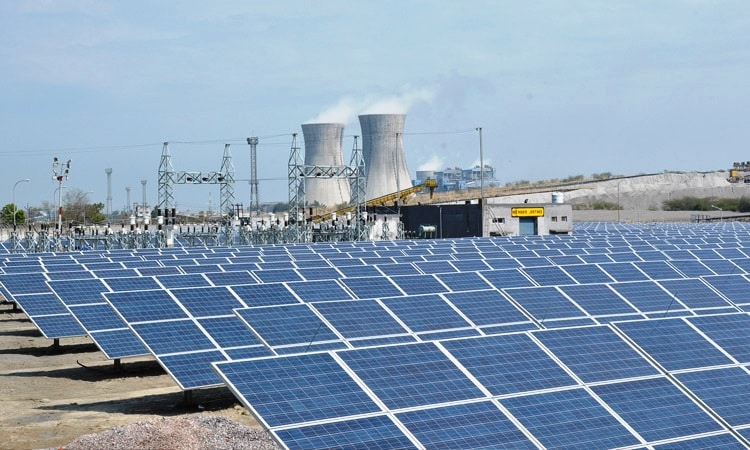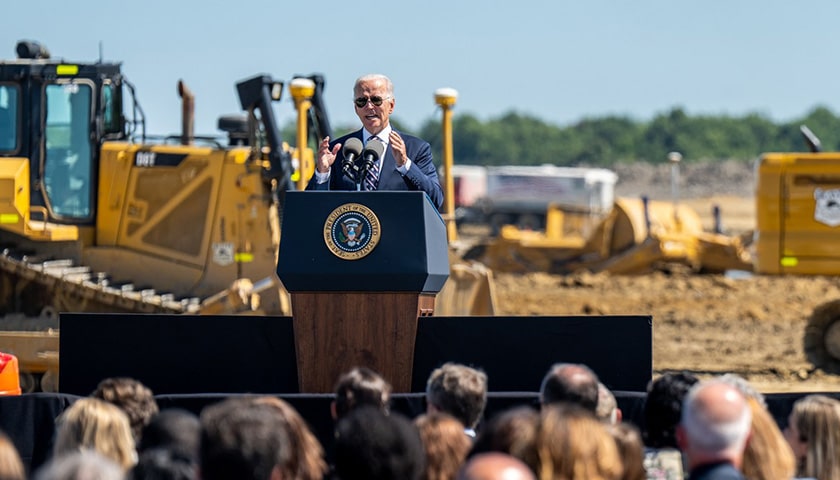
The Biden-Harris administration revitalizes new clean energy projects this month. Whitehouse reported that they took this action to reduce dependence on competitors like China and support coal workers.
The main goal behind this action is to bring manufacturing jobs back home while raising the economy from the ground.
During Biden’s first two years in office, the Congress approved a funding order from the administration to encourage agencies to initiate nationwide projects. The Department of Energy will issue this $450 million initiative from the Bipartisan Infrastructure Law for the new clean energy projects on previous mine lands.
On Monday, the Energy Secretary told reporters, “It is a priority project to focus on a wide range of technologies, from microgrids to advanced nuclear power stations, with the ability to reduce carbon emissions.” She also states that “they have solid reasons and will prove out the potential for reactivating these existing infrastructures, such as substations and lines, by promoting the new economic community’s developments.”

The White House mentioned that the infrastructure law will transfer a $16 million investment to the University of North Dakota and West Virginia University for the purpose of extracting separate rare earth minerals and significant elements from cola mines and waste streams. This investment will enable them to build full-scale design studies for the first time in a refinery facility in the U.S. The White House stated that materials are crucial components for electric vehicle battery parts, currently sourced from outside the U.S.
Granholm said, “This project will be its first kind of facility to generate vital components for solar panels, EVs, wind turbines, and more while cleaning up water and land pollution.” This will also be a good option for creating new job opportunities for local workers.
When Biden took office, the same group selected 25 focused areas for development in 2021, ranging from West Virginia to Wyoming. According to the White House, there are approximately 18,000 targeted mine sites on 1.5 million acres in the United States.
The large-scale struggle aligns with the broader Biden administration’s efforts to combat climate change and support the community, which has lost economic activity due to the shift away from fossil fuel sources, including coal. Republicans and some Democrats have defeated Biden’s most ambitious clean energy plans in Congress, despite three major laws resisting his administration’s fund release.
Many initiatives, such as the Bipartisan Infrastructure Law, the Chips and Science Act, and the Inflation Reduction Act, opened up new opportunities. The designed plans aim to prioritize the communities most impacted by the evolving energy landscape, maximizing federal benefits.
John Podestra, Biden’s senior advisor, said that “these laws provide unprecedented federal support to energy communities such as gas wells, capping abandoned oils, extracting important minerals, developing battery factors, and implementing projects in carbon emissions or green hydrogen.” He also stated that “there will be more opportunities likely to be open after new expanded operations in the energy sector.”
The Biden administration outlined the anticipated advantages of the Inflation Reduction Act, a Democratic-passed bill that aims to encourage investment in clean energy. Replicans emphasize that Congress approved this plan. At the time, American consumers were experiencing high inflation due to high gasoline prices.
According to Deputy Treasurer Wally Adeyemo, “the Inflation Reduction Act is intended to both “deficit the lower” and protect our energy security while reducing energy costs for consumers and fighting climate change.”
He also stated, “The Treasury will continue to work on the implementation, while our main objective is to ensure that all Americans, especially the communities that have been dependent on the energy sector for a long time, Adeyemo reported. “When all communities engage with their full potential, economic growth and productivity increase.”
The Biden administration told the working group it has directed over $14 billion in federal investment in the selected communities. Additionally, the companies alone had invested an extra $7.4 billion in former coal-producing regions.
Berkishire Hathawy Energy has invested $522 million in various regions, including Jackson County and West Virginia, to establish an aerospace manufacturing facility. Additionally, TerraPower has invested $2 billion in a nuclear reactor to close a coal plant in Kemmerer, Wyoming, and Novelis has invested $365 million in an aluminum-recying facility in Todd County, Kentucky.

